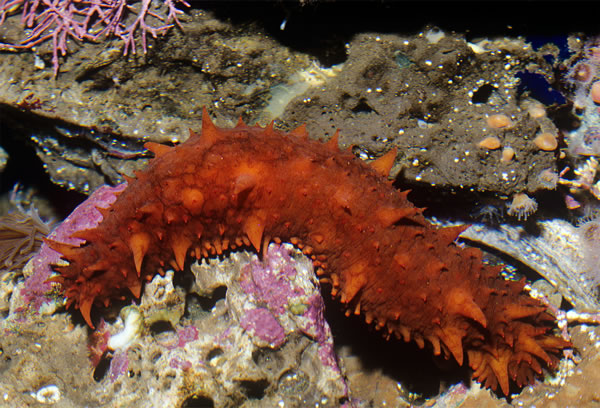
California Sea Cucumber (Parastichopus californicus), California, USA, Pacific Ocean. Photograph by Gerald and Buff Corsi, Visuals Unlimited/Getty Images
You read that right:
Their first hint that the sea cucumber anus was doing triple duty came from a structure called the rete mirabile, a set of blood vessels that connect the sea cucumber’s respiratory trees with its gut.Carrie Arnold of National Geographic News has the story: Here.
Initially, Jaeckle, of Illinois Wesleyan University, and Strathmann, of the University of Washington, thought that the rete mirabile was used to transfer oxygen from the respiratory trees to the gut. But if P. californicus were obtaining food via its anus, it would likely use the rete mirabile to transfer the food to the gut.
To test their idea, the team fed several sea cucumbers radioactive algae, which also contained iron particles. [...]
Not surprisingly, the results showed that the sea cucumbers ate the algae through their actual mouths, which then traveled through their gut.
However, the researchers also found a high level of radioactivity when they looked at the rete mirabile. The only way that those blood vessels could have such a high concentration of radioactivity is if the animal was transferring food from the respiratory trees to the gut via the rete mirabile.

No comments:
Post a Comment